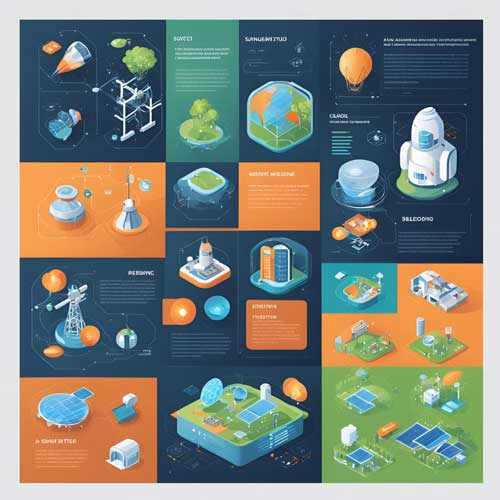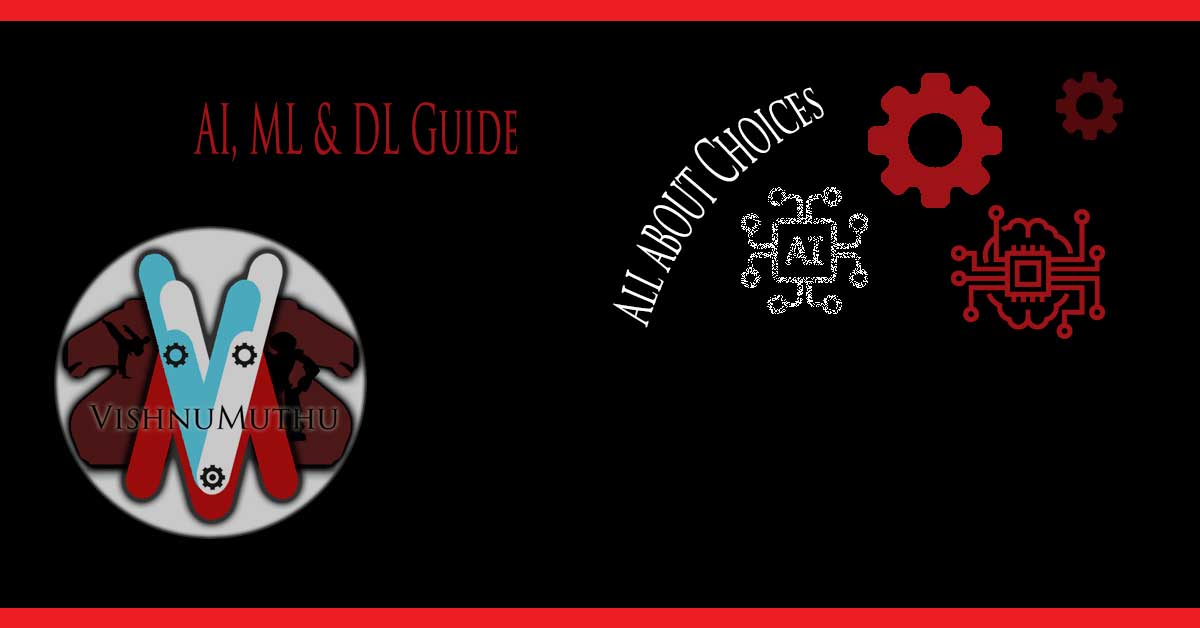Transforming Industries and Shaping the Future
Artificial Intelligence (AI) has rapidly evolved from an experimental technology to a powerful tool driving innovation across various industries. AI’s potential to transform entire sectors, from healthcare to finance, manufacturing to entertainment, is already being realized. In addition to its current applications, several emerging AI technologies are poised to reshape the world as we know it. Below, explores successful AI applications that are already changing the world, as well as those still in development that will revolutionize how we live, work, and interact.
Current Successful Applications of AI
AI has already demonstrated its impact across multiple sectors, enhancing efficiency, improving decision-making, and solving complex problems. Here are some of the most successful applications of AI in use today:
Healthcare: Revolutionizing Diagnostics and Treatment
AI has become a critical tool in healthcare, providing doctors and researchers with powerful systems that improve patient outcomes.
Medical Imaging and Diagnostics: AI models, particularly deep learning algorithms like convolutional neural networks (CNNs), are being used to analyze medical images such as X-rays, MRIs, and CT scans. AI-driven systems like Google’s DeepMind have demonstrated human-level performance in detecting diseases such as cancer, diabetic retinopathy, and cardiovascular diseases from these images. AI enables faster, more accurate diagnoses, leading to earlier interventions and better outcomes.

Drug Discovery: AI is accelerating drug discovery by analyzing vast datasets to identify potential drug candidates, speeding up the research process by years. Deep learning models are used to predict how different chemical compounds interact with biological systems, reducing the need for trial-and-error methods. For example, AI played a role in developing vaccines and treatments during the COVID-19 pandemic.
Personalized Medicine: AI helps personalize treatment plans by analyzing individual patient data (e.g., genetic information, medical history) to recommend tailored therapies. Companies like Tempus and IBM Watson Health are using AI to provide physicians with data-driven insights that optimize patient care.
Autonomous Vehicles: Redefining Transportation
Self-driving vehicles are one of the most anticipated AI-powered innovations. Autonomous cars have the potential to improve road safety, reduce traffic congestion, and enhance mobility for individuals who cannot drive.
Tesla’s Autopilot: Tesla’s Autopilot is an example of AI in autonomous driving. Using a combination of computer vision, sensor fusion, and deep learning, Tesla’s cars can navigate roads, detect obstacles, and assist in parking and lane changing.
Waymo’s Fully Autonomous Vehicles: Waymo, a subsidiary of Alphabet (Google’s parent company), has developed fully autonomous vehicles that operate without human intervention. Waymo’s AI uses a combination of LiDAR, radar, and cameras to understand its environment and make real-time driving decisions.
Potential Impact: Autonomous vehicles are expected to significantly reduce accidents caused by human error, cut down on fuel consumption, and revolutionize logistics, with autonomous trucks and delivery drones potentially reshaping the supply chain.
Financial Services: Enhancing Fraud Detection and Automation
The financial sector has embraced AI to optimize operations, improve customer experiences, and enhance security.
Fraud Detection: AI systems are widely used for detecting fraudulent activities in banking, credit card transactions, and insurance. Machine learning models analyze vast amounts of transactional data to identify unusual patterns that may indicate fraud. AI models continuously adapt to new types of fraud, enhancing the overall security of financial systems.
Robo-Advisors: AI-powered robo-advisors, such as Betterment and Wealthfront, use algorithms to analyze market data and automate investment strategies. These systems provide personalized financial advice and manage portfolios with minimal human intervention, making wealth management more accessible.
Algorithmic Trading: In the stock market, AI algorithms are used to execute trades at lightning speed, analyzing large datasets to make profitable decisions in milliseconds. These systems use predictive analytics to identify trends and optimize trading strategies.
Natural Language Processing (NLP): Transforming Communication and Interaction
AI has made incredible progress in understanding and generating human language, revolutionizing how we interact with machines.
Virtual Assistants: AI-powered virtual assistants like Amazon’s Alexa, Google Assistant, and Apple’s Siri use NLP to understand voice commands, answer questions, and control smart devices. These systems are becoming more sophisticated, handling complex requests and integrating seamlessly with everyday tasks.
Chatbots: In customer service, AI chatbots are being used to handle inquiries, provide support, and resolve issues. NLP-powered chatbots can interact with customers 24/7, reducing wait times and improving service efficiency. Companies like Zendesk and Salesforce have integrated AI chatbots into their customer service platforms.
Language Translation: AI models such as Google Translate and Microsoft Translator leverage NLP to provide real-time language translation, breaking down language barriers in communication. Advanced models like GPT-based systems can now generate human-like text in multiple languages, making cross-lingual communication smoother.
Entertainment: AI-Generated Content and Recommendations
AI has made a significant impact on the entertainment industry, influencing how content is created, distributed, and consumed.
Content Recommendations: Streaming platforms like Netflix, YouTube, and Spotify use AI to analyze user preferences and provide personalized content recommendations. These recommendation engines use collaborative filtering and deep learning models to predict what content users are likely to enjoy, increasing engagement and user satisfaction.
AI-Generated Art and Music: AI is being used to create art, music, and even movie scripts. Models like OpenAI’s DALL·E can generate images based on textual descriptions, while tools like AIVA use AI to compose original music pieces. While AI-generated content is still in its early stages, it opens up new possibilities for creative expression.
AI Technologies in Development: Shaping the Future
While AI is already making an impact, several emerging technologies in development are set to revolutionize the future. These advancements hold the potential to fundamentally change industries and address global challenges.
AI in Climate Change and Environmental Protection
AI has the potential to play a crucial role in mitigating climate change and protecting the environment.
Climate Modeling: AI is being developed to improve climate modeling and predict the impact of various interventions. Machine learning models can analyze vast amounts of environmental data, improving our understanding of climate patterns and helping policymakers make data-driven decisions to reduce carbon emissions.
Smart Agriculture: AI-powered systems are being developed to optimize agricultural practices. Precision agriculture uses AI to monitor soil conditions, weather patterns, and crop health, helping farmers make informed decisions about planting, watering, and fertilizing crops. This can lead to more sustainable farming practices and higher yields, reducing food waste and resource consumption.
Wildlife Conservation: AI is being used to track and protect endangered species. Autonomous drones and AI-powered cameras can monitor wildlife populations, detect poaching activities, and analyze animal behavior. AI-based systems like EarthRanger help conservationists protect biodiversity by analyzing real-time data from protected areas.
AI in Space Exploration
AI is set to revolutionize space exploration, helping humans explore and colonize new frontiers.
Autonomous Spacecraft: AI is being developed to control autonomous spacecraft, enabling them to navigate distant planets and moons. NASA’s Mars rovers, such as Perseverance, use AI to navigate the Martian surface, collect samples, and make decisions about where to explore next.
Satellite Data Analysis: AI is being used to analyze vast amounts of data collected by satellites. Machine learning models can help identify resources, track environmental changes, and monitor space weather. AI will play a key role in future missions to the Moon, Mars, and beyond, enabling autonomous decision-making and data collection.
Brain-Computer Interfaces (BCI): Merging Humans and Machines
Brain-computer interfaces (BCIs) are an emerging field of AI that could fundamentally change how humans interact with machines.
Neuralink: Founded by Elon Musk, Neuralink is developing BCIs that could allow humans to control computers and devices directly with their brains. BCIs could enable individuals with disabilities to regain mobility or communicate more easily. In the long term, BCIs could lead to a symbiosis between human intelligence and AI, allowing us to enhance cognitive abilities and even upload memories.
Medical Applications: BCIs are being developed for medical purposes, such as helping individuals with paralysis control prosthetic limbs with their thoughts. AI algorithms analyze brain signals and translate them into commands for the devices, enabling more natural movement and interaction.
General Artificial Intelligence (AGI): The Ultimate AI Goal
While today’s AI excels in narrow domains, the ultimate goal of AI research is to develop Artificial General Intelligence (AGI)—an AI system that can perform any intellectual task that a human can. AGI would be able to understand, learn, and apply knowledge across a wide range of subjects, much like human intelligence.
Challenges in AGI: Developing AGI presents significant challenges, including the need for systems that can reason abstractly, learn from few examples, and exhibit common sense. However, breakthroughs in areas like deep learning, reinforcement learning, and neuromorphic computing are driving progress toward this ambitious goal.
Potential Impact of AGI: AGI could revolutionize every aspect of human life, from solving complex scientific problems to automating creative tasks. However, its development also raises ethical concerns about control, safety, and the impact on employment and society.
AI is already changing the world through applications in healthcare, transportation, finance, entertainment, and more. As AI continues to advance, its impact will only grow, with emerging technologies in areas like climate change, space exploration, and brain-computer interfaces poised to revolutionize the future. While challenges remain, the continued development of AI promises to unlock unprecedented possibilities and reshape industries, addressing global challenges and enhancing human life in profound ways.



Leave a Reply to Revolutionizing Vehicles and Modern Control – VishnuMuthu Cancel reply